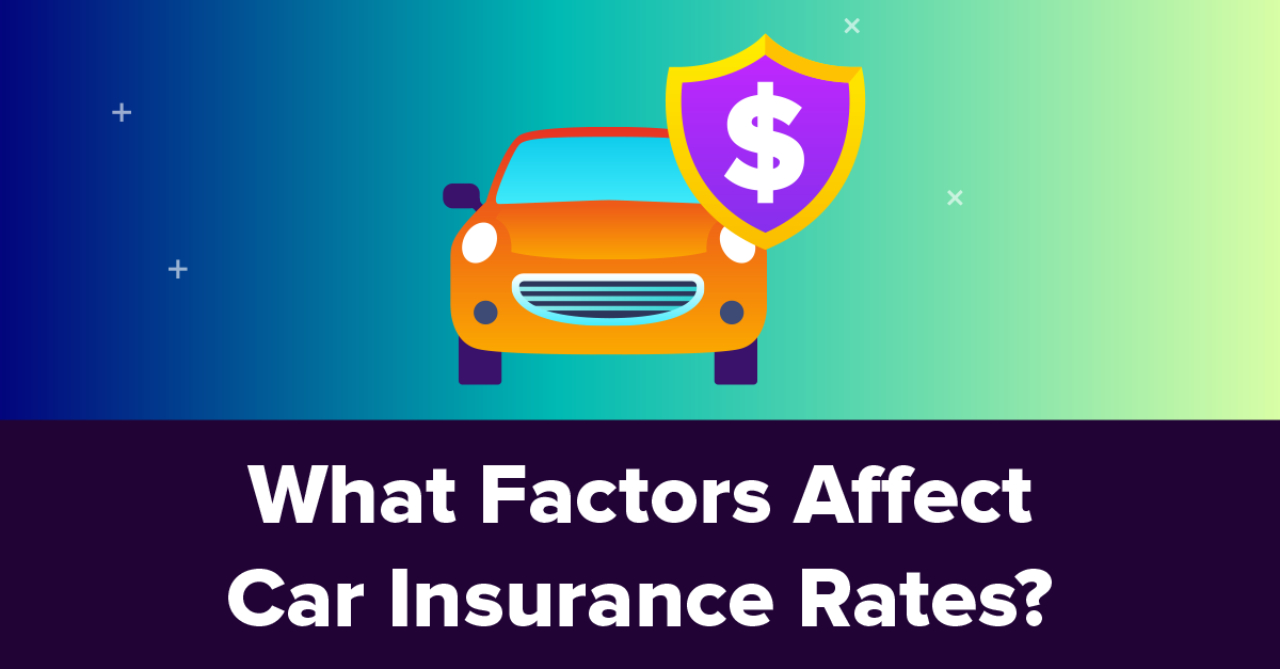Introduction
Car insurance rates can vary significantly from person to person. Understanding the factors that influence these rates is essential for drivers seeking affordable coverage. In this article, we will explore the various criteria that affect car insurance rates and provide insights into how these factors can impact your premiums. By gaining a deeper understanding of these criteria, you can make informed decisions when selecting car insurance coverage.
Age and Gender
1. Young Drivers
Young drivers often face higher insurance premiums due to their limited driving experience and increased risk of accidents. Insurance providers consider statistics that indicate young drivers are more likely to be involved in collisions. Taking defensive driving courses and maintaining a clean driving record can help reduce insurance costs for young drivers.
2. Gender
Gender can also play a role in determining car insurance rates. Historically, young male drivers have been considered higher risk compared to young females. However, insurance companies may now use more individualized factors to determine rates, focusing on driving record and other relevant criteria.
Driving Record
1. Accident History
A driver’s accident history is a crucial factor in determining insurance rates. Those with a history of accidents or claims are generally considered higher risk and may face higher premiums. Conversely, drivers with a clean record and no recent accidents can often enjoy lower insurance rates.
2. Traffic Violations
Traffic violations, such as speeding tickets or running red lights, can also impact car insurance rates. Insurance providers view drivers with a history of violations as riskier and are likely to charge higher premiums. Maintaining a clean driving record and obeying traffic laws can help keep insurance costs down.
Vehicle Type
1. Make and Model
The make and model of a vehicle can influence insurance rates. Luxury or high-performance cars typically have higher insurance premiums due to the higher cost of repairs or replacement. On the other hand, safety features and anti-theft devices can lead to lower rates for certain vehicles.
2. Age of the Vehicle
The age of the vehicle is another factor to consider. Older cars may have lower insurance rates due to their reduced value, while newer vehicles with advanced safety features may be eligible for discounts.
Location
1. Zip Code
The location where a vehicle is primarily driven and parked can affect insurance rates. Urban areas or regions with higher crime rates may result in higher premiums compared to rural or suburban areas. Insurance providers consider the likelihood of theft or accidents in a specific location when determining rates.
2. Urban vs. Rural Areas
Insurance rates can also vary based on whether you live in an urban or rural area. Urban areas often have higher rates due to the increased risk of accidents, theft, and vandalism. Higher population density and heavy traffic can contribute to a higher likelihood of collisions. Conversely, rural areas typically have lower insurance rates because they are associated with lower levels of traffic and fewer instances of theft or vandalism.
Coverage Options
1. Liability Coverage
The type and amount of coverage you choose can impact your insurance rates. Liability coverage, which includes bodily injury and property damage liability, is usually required by law. Insurance providers consider the coverage limits you select and the level of protection you have in place. Higher coverage limits generally result in higher premiums.
2. Comprehensive and Collision Coverage
Comprehensive and collision coverage protect your vehicle in the event of damage from accidents, theft, or natural disasters. The deductible you choose for these coverages can affect your insurance rates. A higher deductible means you’ll have a lower premium, but you’ll also have to pay more out of pocket in the event of a claim.
Credit History
Believe it or not, your credit history can impact your car insurance rates. Insurance companies often consider credit-based insurance scores when determining premiums. Studies have shown a correlation between credit history and the likelihood of filing a claim. Maintaining good credit can help you secure lower insurance rates.
Deductible
As mentioned earlier, the deductible you choose for comprehensive and collision coverage can affect your insurance rates. A deductible is the amount you must pay out of pocket before your insurance coverage kicks in. Opting for a higher deductible can lower your premiums, but it’s important to ensure you can afford the deductible if you need to make a claim.
Annual Mileage
The number of miles you drive each year can impact your insurance rates. Insurance providers consider that the more you drive, the higher the chances of being involved in an accident. If you have a long daily commute or frequently take road trips, you may face higher premiums compared to someone who drives less.
Occupation
Believe it or not, your occupation can also play a role in determining your car insurance rates. Certain professions may be associated with lower risk factors and result in lower premiums. For example, individuals with jobs that require extensive driving, such as delivery drivers or traveling salespeople, may face higher insurance costs due to the increased time spent on the road.
Marital Status
Marital status is another criterion that can affect car insurance rates. Statistics indicate that married individuals tend to have lower accident rates compared to single individuals. As a result, insurance providers often offer lower rates to married couples.
Insurance History
Your insurance history can impact your rates as well. If you have a history of maintaining continuous insurance coverage without any lapses, you may be eligible for lower rates. On the other hand, if you have a gap in coverage or a history of policy cancellations, insurance companies may consider you a higher-risk driver and charge higher premiums.
Discounts
Insurance providers often offer various discounts that can help lower your car insurance rates. These discounts can be based on factors such as having multiple policies with the same company, installing anti-theft devices in your vehicle, being a safe driver, or completing defensive driving courses. It’s important to inquire about available discounts when shopping for car insurance.
Other Factors
In addition to the criteria mentioned above, there may be other factors that insurance companies consider when determining car insurance rates. These can include your driving habits, the use of your vehicle (personal or business), and even your level of education. It’s important to discuss these factors with your insurance provider to gain a better understanding of how they may impact your rates.
Conclusion
In conclusion, several criteria affect car insurance rates, and understanding them can help you navigate the process of obtaining affordable coverage. Factors such as age, gender, driving record, vehicle type, location, coverage options, credit history, deductible, annual mileage, occupation, marital status, insurance history, and available discounts all play a role in determining premiums.




